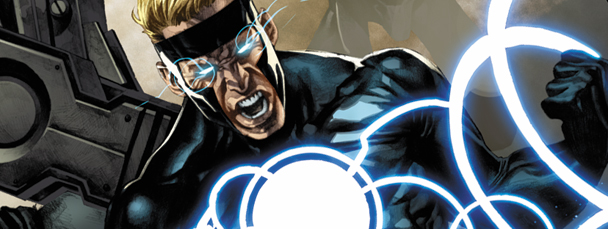|

By Tim Stevens
Alexander Summers is an adult male who presents as being in above average physical shape. He arrives on time for session and dresses appropriately, most often in street clothes although, at times, he was arrived in his so-called “uniform” or costume. Summers has lived most of his adult life connected to either the mutant rights group the X-Men or one of its several sister organizations under the name Havok.
These organizations are also where the client has made the majority of his lasting significant interpersonal connections. These include a long-term—albeit on-again, off-again—romantically intimate relationship Lorna Dane (Polaris) and reconnecting with the brother he was separated from in early childhood by the foster system, Scott Summers (Cyclops).
This therapist and the client have a therapeutic relationship that began with couples therapy for he and Dane. As such, this writer would typically not see Summers outside of that dyad and certainly not without all parties being aware. However, given the circumstances and that the focus of these individual therapy sessions is thoroughly disconnected from the focus of the couples therapy, I have chosen to break from my typical approach. I have made it clear to the client, however, that if, at any time, therapy begins to become about Dane and/or their relationship to one another, it will be important to inform her that the client is seeing this writer for separate individual sessions as well.
Currently, the therapy is organized around the client’s ambivalence about being a hero and a leader, feelings that have only intensified in light of recent events. Summers has spent most of his life in the shadow of his older brother, by his own admittance. Whereas Scott would lead the most prominent X-Men group, Alex would be “only” a member or lead a lesser group. Scott was often viewed as the obvious successor to the “dream” espoused by Professor Charles Xavier, Alex was not even mentioned in such conversations for the most part.
For a time, being Summers “the Lesser” bothered and motivated the client. However, over the years, those emotions transitioned and, I have suggested, became the feelings of indifference and ambivalence the client often wrestles with when he considers his place as a “hero” and even more so as a leader.
The decisions and actions taken by his brother have both intensified and cast these feelings in a significantly different light. No longer does the client find himself competing with his brother for positive attention or reputation but has instead become, de facto, the favored Summers brother by both the so-called super hero community and the press. It is an uncomfortable position for the client. It carries with it increased attention, more complicated feelings about his relationship to his brother, and new feelings of responsibility that he finds himself but wanting and greatly resenting.
Given how new this situation is, therapy is currently oriented around simply identifying and processing the emotions Summers is experiencing in a fully supportive and non-judgmental environment. As the aftermath begins to die down and the new status of people like himself and groups like the X-Men become clearer, therapy will transition to how to increase those positive feelings, decrease the unhealthy ones, and evaluate the options before the client so he can make decisions that best honor both his feelings and responsibilities.
On October 3, Alexander Summers will meet with Doctors Rick Remender and John Cassaday for his next session. Please review the file UNCANNY AVENGERS #1 for all their findings.
Psy D. Candidate Tim Stevens, MA is a Dialectical Behavior Therapy Consultant and Practicum Trainee who currently provides therapy and outreach at a state university.
|








